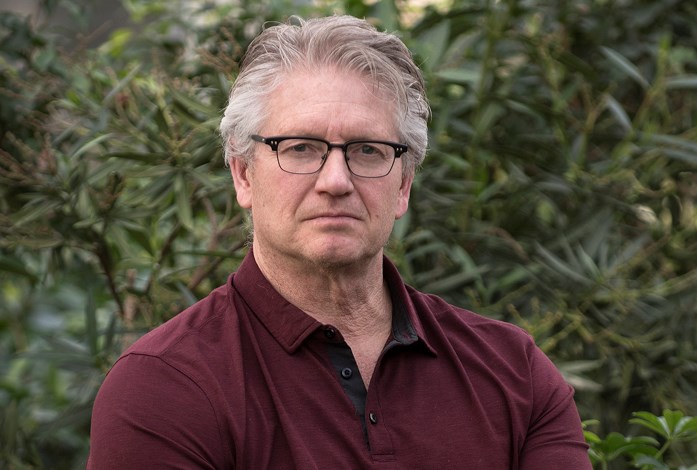After investigations revealed last year that the use of banned pesticides in medical cannabis crops was worse than Health Canada originally thought, one local man decided to use his expertise to make a difference.
Jim Hole, who recently joined forces with medical cannabis producer Atlas Growers, said he will be consulting on plant cultivation and health, which includes overseeing what chemicals get used on the cannabis plants.
“One of the reasons why I was excited to do this (job) was I could see where the industry needed to be in a position where they did really address these concerns,” he said. “I look at this and I’m going, what is this all about and why did it get to this point?”
Last year the Globe and Mail reported that some licensed producers of medical cannabis were using banned pesticides. The news outlet spoke with cancer patients who had suffered adverse effects from the plant after using it to help with cancer treatments.
In one case the Globe reported that Mettrum Ltd. had knowingly used the banned pesticide myclobutanil, which turns to hydrogen cyanide when smoked. One employee hid it in the ceiling when Health Canada arrived for a planned inspection.
Following the Globe’s articles Health Canada started conducting random inspections and discovered the problem was much larger than they had originally thought.
When Hole read the news he said he was surprised.
“I don’t know how people can sleep at night thinking that they’ve actually applied something to a crop, knowing that it’s not registered for it,” he said. “I couldn’t do that."
Having grown up on a farm, Hole said from a young age he was in charge of applying proper pesticides on the family crop.
Only 17 pesticides have been approved for use on cannabis crops. Some pesticides act like probiotics while preventing mildew from growing, while others are soap-based insecticides and herbicide oils to keep pests away, like spider mites.
While Hole said he will do everything he can to maintain crop health at Atlas, there is a likelihood that at some point they’ll lose some product and have to start again.
“Even the very very best operations, there are going to be challenges with pest control. Pests have evolved with plants for a long time,” he said.
Hole is a licensed pesticide applicator for both landscape and greenhouse, making him the right man for the consultation job. He said he wants to prevent the use of banned pesticides from happening within the region.
Data released by Health Canada from April 2016 to March 2017 show that after random testing of producers started in Feb. 2017 there have been major violations of regulations set by the government.
In 2016 there were five incidents. Two involved Aurora Cannabis Enterprises Inc., with one each at Mettrum (Bennett North) Ltd., Mettrum Ltd. and Hydropothecary. Aurora is based in Edmonton.
Health Canada seized product from Aurora both times, issued a warning to Mettrum (Bennet North) Ltd. and Mettrum Ltd. and seized product and issued a warning to Hydropothecary.
The federal health organization released a statement in May 2017 that said in that month two leaf samples from Hydropothecary tested positive for myclobutanil at low levels of between 0.012 and 0.023 parts per million.
One leaf sample from Peace Naturals tested positive for piperonyl butoxide at low levels of 0.78 parts per million.
CBC reported that in Dec. 2016 Organigram Incorporated in Moncton, N.B. voluntarily recalled five lots of medical cannabis that tested positive for two banned pesticides. In Jan. 2017 the company voluntarily recalled 69 lots of its product with same two banned pesticides.
While cases of banned pesticide use is still being detected, Allan Rewak, executive director of Cannabis Canada Association, said Health Canada’s inspections have been working.
“Identifying the problem is really a sign that the systems at work. We found the problem, the company was actioned and I’m pleased to say that we’re not seeing those types of problems reemerge.”
He said having “quality-controlled product that’s safe and respects the well being of Canadians” is the primary focus of licensed producers.
According to Rewak, the majority of banned pesticide use was unbeknownst to the managers of the medical cannabis companies involved. In one case where myclobutanil was found, he said the company had bought cannabis plants from another producer who sold it with the pesticide already on the plant.
Hydropothecary and Aurora are members of the Cannabis Canada Association.
Hole said when it comes to working at Atlas Growers, he’s going to make sure contamination is prevented to the most minute detail. That means making sure everyone is sanitized at all times, wearing proper gear and no unauthorized touching of plants.
At the end of the day Hole said the most important thing is the health of patients using the drug.
“First and foremost, you just want to do the right thing. It’s important that when people purchase it, you have to feel confident that they’re going home and knowing that they’ve got stuff that’s going to be safe.”




